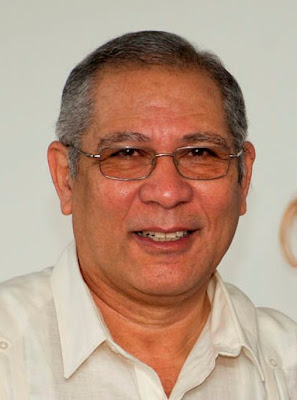HELPS CUBANS, NOT CASTRO
Help Cubans, not Castro
By Frank Calzon
Special to the Sentinel
 A recent article in the Sentinel ("House Bill Eases Travel to Cuba") reports that several members of Congress are introducing legislation to allow Cuban-Americans "to visit their relatives in Cuba as often as they wish and take as much money as they want."
A recent article in the Sentinel ("House Bill Eases Travel to Cuba") reports that several members of Congress are introducing legislation to allow Cuban-Americans "to visit their relatives in Cuba as often as they wish and take as much money as they want."The congressional sponsors, no doubt, mean well, but in reality an influx of millions of dollars into Havana's coffers mostly benefits Cuba's repressive communist regime and will likely delay much needed economic reforms in Cuba.
That's not a speculative opinion; it's a reflection on the history of the Cuban regime. When the perennial economic crisis hits Cuba, the regime initiates a few economic reforms to assuage unrest. When the economy improves, the government revokes the reforms.
Facing food shortages in the 1980s, Castro freed farmers to establish "free markets" and independently sell vegetables. When production rose and hunger eased due to these successful policies, Castro shut down the markets. From the perspective of Cuba's ruling class, securing the island's food supply will never be as important as quelling the potential threat of successful farmers challenging the government.
When Soviet subsidies ended, Havana authorized opening home restaurants, called paladares. The restaurants could seat no more than 12 people, but the families who ran them could keep the proceeds (after taxes). The government also began licensing independent carpenters, plumbers and other workers. These reforms, however, were aborted with the arrival of European tourists and their new money. For foreigners, it is a sad footnote that Cubans who do not work in the tourist industry are banned from the resorts and beaches. More recently, Hugo Chavez's government in Venezuela has begun subsidizing Cuba.
It may be counterintuitive to the American mind, but the pattern is well established in Cuba: When tensions ease, reform is scratched. If Americans want to relieve the suffering of the Cuban people, we must continue to link our assistance to economic reform in Cuba.
America's "Cuba policy" is not stagnant; it has been evolving for some time. U.S. corporations annually sell hundreds of millions of dollars in foodstuffs to the Castro brothers. Those sales are on a "cash and carry" basis because the president and Congress have wisely refused to extend U.S. credit or provide "export insurance." Cuba already owes billions of dollars to European banks and foreign governments. The real question is whether to extend U.S. credit, whether to put the American taxpayer in the position of subsidizing repression 90 miles away.
Current American policy aims to keep hard currency out of the pockets of Castro's henchmen. Experience demonstrates that hard currencies tend to flow to Cuba's privileged ruling classes and are used to finance repression, anti-American propaganda and violence against Americans.
Even so, Cuban-Americans visiting and putting money directly into the hands of relatives have long received special consideration. We can travel to Cuba -- if Castro allows it -- once every three years to attend to family emergencies and can send $100 a month to relatives. That $100 is five times the average monthly salary paid in Cuba; these remittances have made Cuban-Americans the largest source of humanitarian aid to Cuba.
Family remittances to Cuba don't have a multiplying economic effect. When Mexican Americans send money to relatives in Mexico, the dollars pass through many hands. Mexicans can buy and sell goods, establish businesses, hire people, buy new or used vehicles. Until that sort of independent economic activity is allowed in Cuba, a surge of dollars only puts money in government coffers.
There is nothing wrong with making periodic adjustments in U.S.-Cuba policy. While considering what adjustments should be made, however, consider too that the current restrictions were imposed in response to undeniable abuse.
The ban on tourist travel should remain. A procedure for licensing Cuban-American travel as exists for journalists, scientists and several other categories of people, may be warranted. Certainly a Cuban-American who goes to visit a seriously ill relative should not have to wait for three years to request another travel license to attend a funeral.
Foreign policy is always a balancing act among conflicting interests. The generosity and humanitarian impulses of the American people are admirable, but those wishing to give Castro the benefit of the doubt must be reminded that the issue has never been the U.S. embargo, but rather Cuba's freedom from communist tyranny.
Frank Calzon is executive director of the Center for a Free Cuba in Washington, D.C. He wrote this commentary for the Orlando Sentinel














0 Comments:
Publicar un comentario
<< Home